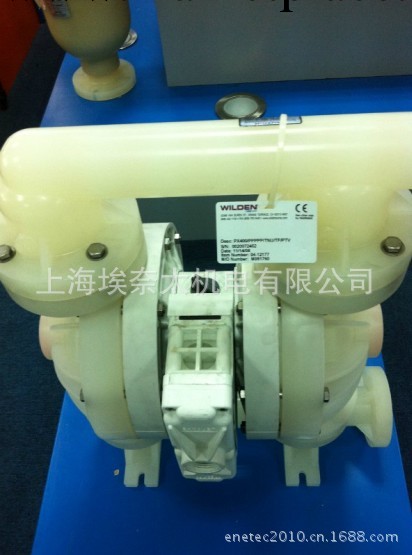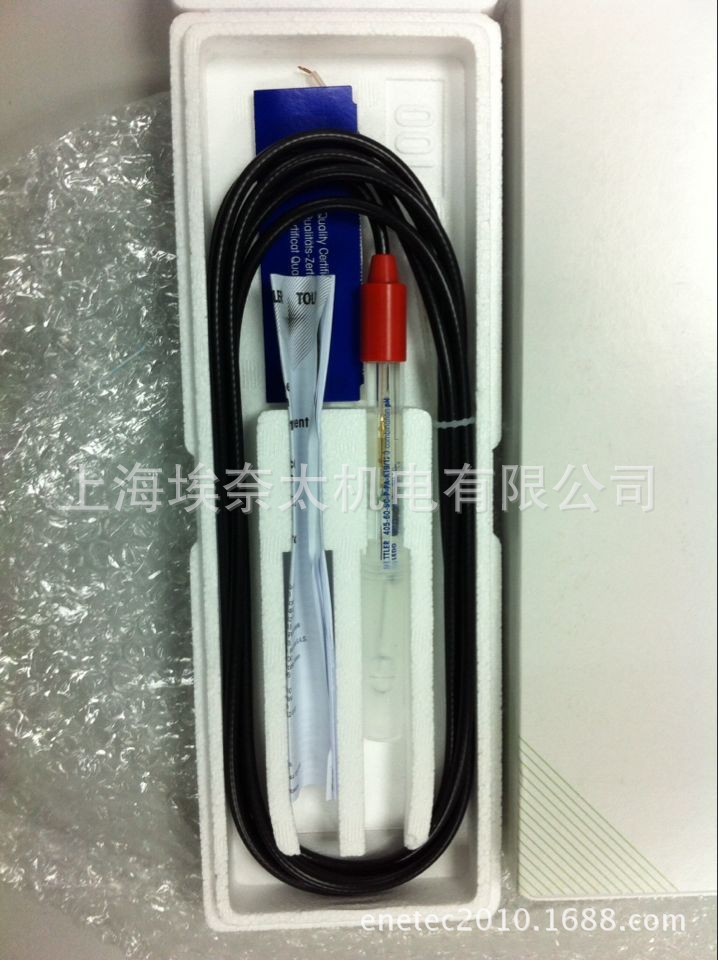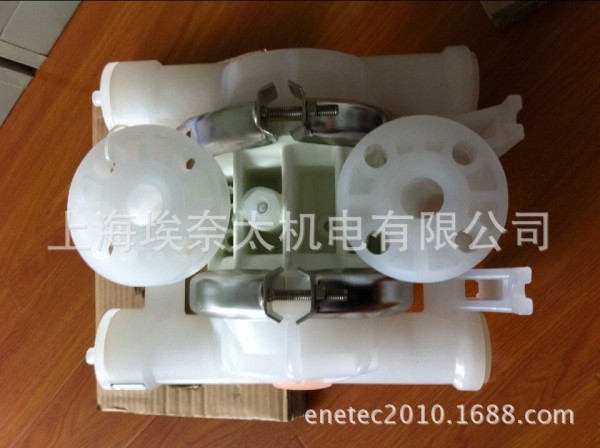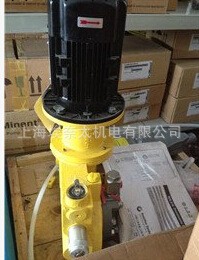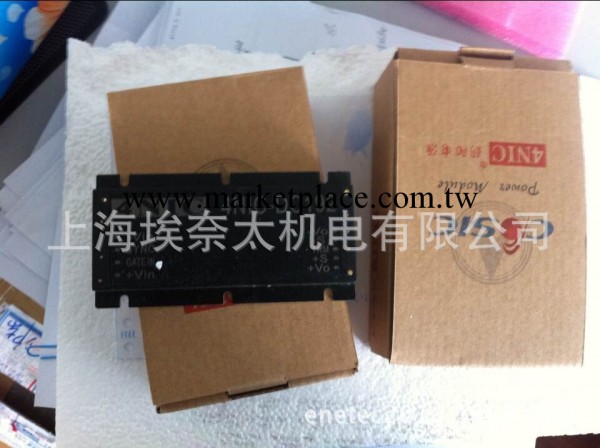以上價格隻做參考,具體價格等情況電話咨詢或麵議,歡迎來電咨詢;021-58691175
SECTION 2
THE WILDEN PUMP — HOW IT WORKS
The Wilden diaphragm pump is an air-operated, positive displacement, self-priming pump. These drawings show the flow pattern
through the pump upon its initial stroke. It is assumed the pump has no fluid in it prior to its initial stroke.
FIGURE 1 The air valve directs pressurized air to
the back side of diaphragm A. The compressed air
is applied directly to the liquid column separated by
elastomeric diaphragms. The diaphragm acts as a
separation membrane between the compressed air
and liquid, balancing the load and removing
mechanical stress from the diaphragm. The
compressed air moves the diaphragm away from
the center block of the pump. The opposite
diaphragm is pulled in by the shaft connected to the
pressurized diaphragm. Diaphragm B is on its
suction stroke; air behind the diaphragm has been
forced out to the atmosphere through the exhaust
port of the pump. The movement of diaphragm B
toward the center block of the pump creates a
vacuum within chamber B. Atmospheric pressure
forces fluid into the inlet manifold forcing the inlet
valve ball off its seat. Liquid is free to move past the
inlet valve ball and fill the liquid chamber (see
shaded area).
FIGURE 2 When the pressurized diaphragm,
diaphragm A, reaches the limit of its discharge
stroke, the air valve redirects pressurized air to the
back side of diaphragm B. The pressurized air
forces diaphragm B away from the center block
while pulling diaphragm A to the center block.
Diaphragm B is now on its discharge stroke.
Diaphragm B forces the inlet valve ball onto its seat
due to the hydraulic forces developed in the liquid
chamber and manifold of the pump. These same
hydraulic forces lift the discharge valve ball off its
seat, while the opposite discharge valve ball is
forced onto its seat, forcing fluid to flow through the
pump discharge. The movement of diaphragm A
toward the center block of the pump creates a
vacuum within liquid chamber A. Atmospheric pressure
forces fluid into the inlet manifold of the pump.
The inlet valve ball is forced off its seat allowing the
fluid being pumped to fill the liquid chamber.
FIGURE 3 At completion of the stroke, the air
valve again redirects air to the back side of
diaphragm A, which starts diaphragm B on its
exhaust stroke. As the pump reaches its original
starting point, each diaphragm has gone through
one exhaust and one discharge stroke. This constitutes
one complete pumping cycle. The pump may
take several cycles to completely prime depending
on the conditions of the application.
PRO-FLO™ AIR DISTRIBUTION SYSTEM
OPERATION — HOW IT WORKS
The Pro-Flo™ patented air distribution
system incorporates three moving parts:
the air valve spool, the pilot spool, and the
main shaft/diaphragm assembly. The heart
of the system is the air valve spool and air
valve. As shown in Figure A, this valve
design incorporates an unbalanced spool.
The smaller end of the spool is pressurized
continuously, while the large end is alternately
pressurized then exhausted to
move the spool. The spool directs pressurized
air to one air chamber while
exhausting the other. The air causes the
main shaft/diaphragm assembly to shift to
one side — discharging liquid on that side
and pulling liquid in on the other side.
When the shaft reaches the end of its
stroke, the inner piston actuates the pilot
spool, which pressurizes and exhausts the
large end of the air valve spool. The repositioning
of the air valve spool routes the
air to the other air chamber.
Figure A


批發市場僅提供代購諮詢服務,商品內容為廠商自行維護,若有發現不實、不合適或不正確內容,再請告知我們,查實即會請廠商修改或立即下架,謝謝。

